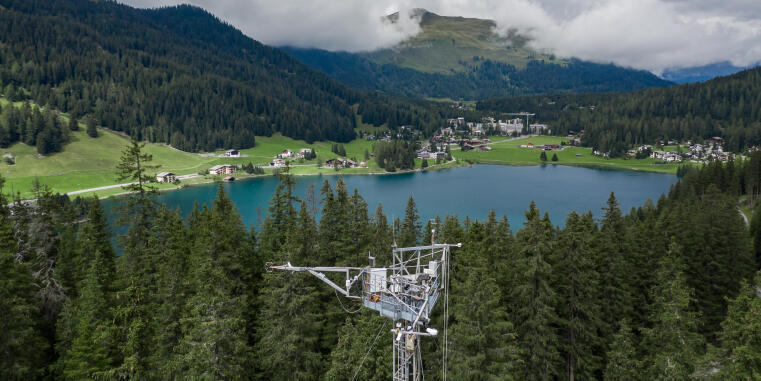

Project CERES (2024-2027)
Global change drivers such as air pollution (nitrogen, sulfur), but also extreme events in air temperature, precipitation, soil and atmospheric dryness have direct effects on the functioning of forests and might reduce or even offset the effectiveness of nature-based solutions in the future. Defining effective mitigation strategies needs to consider resilience, i.e., resistance and recovery, of forests to air pollution and extreme events. This requires a mechanistic understanding of tree ecophysiological processes that drive forest CO2 uptake and evaporative cooling, and directly affect the capacity of forests for mitigating climate change. In CERES, we aim to improve the mechanistic understanding of how changes in tree ecophysiology in response to air pollution and climate extremes drive the forest ecosystem's capacity to sequester C and its evaporative cooling. Our hypothesis is that spatio-temporal variations in atmospheric N and S deposition interact with climate drivers (positively or negatively depending on their magnitude) to change trends in resistance, recovery, and resilience of forests in response to extreme events.
This project is hosted at ETH Zürich.


